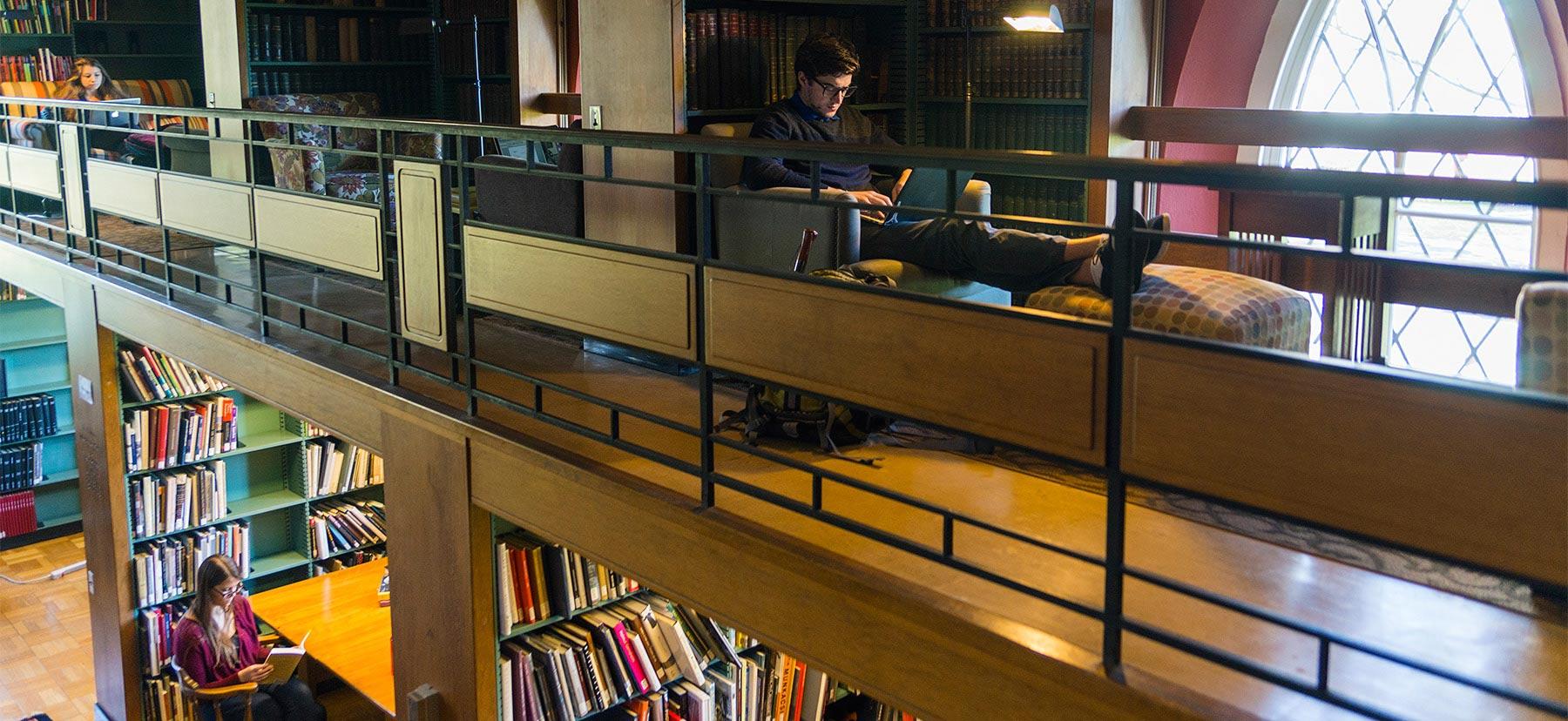
Students reading in the Philips Wing, Lutnick Library (Source: Patrick Montero, Haverford College)
Welcome to the Haverford libraries! We are glad for the chance to introduce resources and services that are available to you.
You have access to over 3 million physical and digital items including films, manuscripts, photographs and more through the Tripod library catalog. This also includes many physical titles from Bryn Mawr and Swarthmore that you can request through Tripod. Use the Haverford libraries' website to learn about services and connect with library staff.
You will find resources, study spaces, and meeting rooms in Lutnick Library (this main building includes Quaker and Special Collections and Digital Scholarship services), the White Science Library (part of KINSC and found in Hilles on the third floor), the Astronomy Library (in the Strawbridge Observatory) and the Harris Music Library in Roberts.
The libraries are your spaces. You can track down sources, learn, study and share ideas. The library staff is dedicated to supporting your development as researchers and scholars. Ask us questions and tell us when you run into a problem. We want you to have every opportunity possible to explore, analyze and reach new levels of understanding.
Liaisons are the public face of the Haverford Libraries. They help to create an inclusive, comfortable and welcoming environment for all who visit the libraries. If you need help locating resources simply stop by one of the liaison desk and ask for assistance at the following libraries: Lutnick Library, White Science Library, and Harris Music Library.
Subject librarians work with students and faculty in every department and program. They provide one-on-one support of students throughout their college careers, culminating in the senior thesis projects. To arrange a meeting, email the librarian who works with the department related to your topic. See this listing for librarians by subject area. In your message include a sentence or two about your research topic.
Students can get help starting to develop a research question or beginning a search. Those further along can get advice on research tools, answers to specific questions, and new sources.
The librarian drafts research notes ahead of time, adds to them during the meeting, and sends the results to the student. They cover search strategies, research tools, and references to important individual books, journal articles and other pertinent sources.
Subject librarians also make research guides for individual classes and for topics. Browse for information on different subjects. See this introduction to research guides for more information.